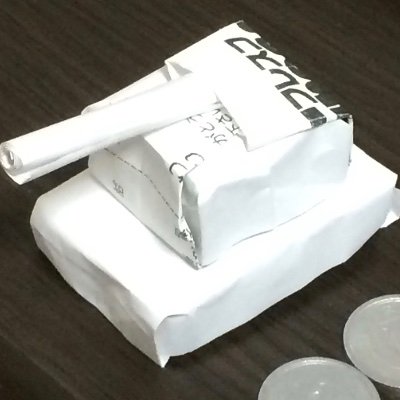結果
| 問題 | No.2220 Range Insert & Point Mex |
| コンテスト | |
| ユーザー |
 cureskol cureskol
|
| 提出日時 | 2023-02-18 15:48:32 |
| 言語 | C++17 (gcc 15.2.0 + boost 1.89.0) |
| 結果 |
AC
|
| 実行時間 | 217 ms / 2,000 ms |
| コード長 | 7,429 bytes |
| 記録 | |
| コンパイル時間 | 3,472 ms |
| コンパイル使用メモリ | 242,456 KB |
| 最終ジャッジ日時 | 2025-02-10 18:53:35 |
|
ジャッジサーバーID (参考情報) |
judge2 / judge2 |
(要ログイン)
| ファイルパターン | 結果 |
|---|---|
| sample | AC * 3 |
| other | AC * 36 |
ソースコード
#pragma region template
#pragma GCC optimize("Ofast")
#include <bits/stdc++.h>
using namespace std;
using ll=long long;
using ld=long double;
using vi=vector<int>;
using vll=vector<ll>;
using pi=pair<int,int>;
using pll=pair<ll,ll>;
#define overload2(a,b,c,...) c
#define overload3(a,b,c,d,...) d
#define overload4(a,b,c,d,e,...) e
#define overload5(a,b,c,d,e,f,...) f
#define TYPE1(T) template<typename T>
#define TYPE2(T,U) template<typename T,typename U>
#define TYPE(...) overload2(__VA_ARGS__,TYPE2,TYPE1)(__VA_ARGS__)
#define TYPES1(T) template<typename... T>
#define TYPES2(H,T) template<typename H,typename... T>
#define TYPES(...) overload2(__VA_ARGS__,TYPES2,TYPES1)(__VA_ARGS__)
#define REP4(i,s,n,d) for(int i=(s);i<(n);i+=(d))
#define REP3(i,s,n) REP4(i,s,n,1)
#define REP2(i,n) REP3(i,0,n)
#define REP1(n) REP2(tomato,n)
#define REP(...) overload4(__VA_ARGS__,REP4,REP3,REP2,REP1)(__VA_ARGS__)
#define RREP4(i,n,s,d) for(int i=(n)-1;i>=(s);i-=(d))
#define RREP3(i,n,s) RREP4(i,n,s,1)
#define RREP2(i,n) RREP3(i,n,0)
#define RREP1(n) RREP2(tomato,n)
#define RREP(...) overload4(__VA_ARGS__,RREP4,RREP3,RREP2,RREP1)(__VA_ARGS__)
#define FOR4(a,b,c,d,v) for(auto [a,b,c,d]:v)
#define FOR3(a,b,c,v) for(auto [a,b,c]:v)
#define FOR2(a,b,v) for(auto [a,b]:v)
#define FOR1(a,v) for(auto a:v)
#define FOR(...) overload5(__VA_ARGS__,FOR4,FOR3,FOR2,FOR1)(__VA_ARGS__)
#define AFOR4(a,b,c,d,v) for(auto&[a,b,c,d]:v)
#define AFOR3(a,b,c,v) for(auto&[a,b,c]:v)
#define AFOR2(a,b,v) for(auto&[a,b]:v)
#define AFOR1(a,v) for(auto&a:v)
#define AFOR(...) overload5(__VA_ARGS__,AFOR4,AFOR3,AFOR2,AFOR1)(__VA_ARGS__)
#define CFOR4(a,b,c,d,v) for(const auto&[a,b,c,d]:v)
#define CFOR3(a,b,c,v) for(const auto&[a,b,c]:v)
#define CFOR2(a,b,v) for(const auto&[a,b]:v)
#define CFOR1(a,v) for(const auto&a:v)
#define CFOR(...) overload5(__VA_ARGS__,CFOR4,CFOR3,CFOR2,CFOR1)(__VA_ARGS__)
#define ALL(v) v.begin(),v.end()
#define RALL(v) v.rbegin(),v.rend()
#define SORT(v) sort(ALL(v))
#define RSORT(v) sort(RALL(v))
#define REVERSE(v) reverse(ALL(v))
#define UNIQUE(v) SORT(v),v.erase(unique(ALL(v)),v.end())
#define SZ(v) int(v.size())
TYPES(T) void input(T&... a){ (cin>>...>>a); }
#define DECLARE(T,...) T __VA_ARGS__;input(__VA_ARGS__);
#define INT(...) DECLARE(int,__VA_ARGS__)
#define STR(...) DECLARE(string,__VA_ARGS__)
#define LL(...) DECLARE(long long,__VA_ARGS__)
#define CHR(...) DECLARE(char,__VA_ARGS__)
#define DBL(...) DECLARE(double,__VA_ARGS__)
#define VI(n,v) vi v(n);cin>>v;
#define VLL(n,v) vll v(n);cin>>v;
TYPE(T) istream&operator>>(istream&is,vector<T>&v){
for(auto&a:v)cin>>a;
return is;
}
TYPE(T) ostream&operator<<(ostream&os,const vector<T>&v){
if(&os==&cerr)os<<"[";
REP(i,v.size()){
os<<v[i];
if(i+1<v.size())os<<(&os==&cerr?",":" ");
}
if(&os==&cerr)os<<"]";
return os;
}
TYPE(T,S) istream&operator>>(istream&is,pair<T,S>&p){
cin>>p.first>>p.second;
return is;
}
#ifdef __DEBUG
#include <debug>
#else
#define debug(...) void(0)
#endif
void print(){ cout << '\n'; }
TYPES(T,Ts) void print(const T& a,const Ts&... b){
cout<<a;
(cout<<...<<(cout<< ' ',b));
cout << '\n';
}
TYPE(T) using pq=priority_queue<T>;
TYPE(T) using pqg=priority_queue<T,vector<T>,greater<T>>;
TYPE(T) T pick(queue<T>& que){assert(que.size()); T a=que.front();que.pop();return a;}
TYPE(T) T pick(pq<T>& que){assert(que.size()); T a=que.top();que.pop();return a;}
TYPE(T) T pick(pqg<T>& que){assert(que.size()); T a=que.top();que.pop();return a;}
TYPE(T) T pick(stack<T>& sta){assert(sta.size()); T a=sta.top();sta.pop();return a;}
string YES(bool f=true){return (f?"YES":"NO");}
string Yes(bool f=true){return (f?"Yes":"No");}
string yes(bool f=true){return (f?"yes":"no");}
constexpr int INF=1e9+7;
constexpr ll LINF=ll(1e18)+7;
constexpr ld EPS=1e-10;
vi iota(int n){vi a(n);iota(ALL(a),0);return a;}
TYPE(T) vector<pair<T,int>> query_sort(const vector<T>&v){
vector<pair<T,int>> res(v.size());
REP(i,v.size())res[i]={v[i],i};
SORT(res);
return res;
}
TYPE(T) T rev(T a){ REVERSE(a);return a; }
TYPE(T) void fin(T a){cout<<a<<'\n';exit(0);}
TYPE(T) bool chmax(T &a,T b){return (a<b&&(a=b,true));}
TYPE(T) bool chmin(T &a,T b){return (a>b&&(a=b,true));}
TYPES(T,Ns) auto make_vector(T x,int n,Ns ...ns){
if constexpr(sizeof...(ns)==0)return vector<T>(n,x);
else return vector(n,make_vector<T>(x,ns...));
}
bool in(const ll S,const int a){return (S>>a)&1;}
int popcount(const ll S){return __builtin_popcountll(S);}
int digit(char c){ return (c>='0' and c<='9' ? c-'0' : -1);}
ll sqrtll(ll a){
for(ll b=sqrt(a);b*b<=a;b++)if(b*b==a)return b;
for(ll b=sqrt(a);b>=0 and b*b>=a;b--)if(b*b==a)return b;
return -1;
}
#pragma endregion template
#define ALL_(v) v.begin(),v.end()
template<typename T,bool Sentinel=false>
class Compress{
vector<T> v;
bool prepared;
public:
Compress():prepared(false){
if constexpr(Sentinel){
static_assert(std::numeric_limits<T>::is_specialized,"cannot use Sentinel");
v={numeric_limits<T>::min(),numeric_limits<T>::max()};
}
}
Compress(const vector<T>&w):v(w),prepared(false){
if constexpr(Sentinel){
static_assert(std::numeric_limits<T>::is_specialized,"cannot use Sentinel");
v.push_back(numeric_limits<T>::min());
v.push_back(numeric_limits<T>::max());
}
build();
}
void add(T a){
assert(!prepared);
v.push_back(a);
}
void build(){
assert(!prepared);
prepared=true;
sort(ALL_(v));
v.erase(unique(ALL_(v)),v.end());
}
bool is_prepared()const{ return prepared; }
int operator[](const T&a)const{
assert(prepared);
auto it=lower_bound(ALL_(v),a);
assert(*it==a);
return distance(v.begin(),it);
}
int geq(const T&a)const{
assert(prepared);
auto it=lower_bound(ALL_(v),a);
return distance(v.begin(),it);
}
int gt(const T&a)const{
assert(prepared);
auto it=upper_bound(ALL_(v),a);
return distance(v.begin(),it);
}
int leq(const T&a)const{
assert(prepared);
auto it=--upper_bound(ALL_(v),a);
return distance(v.begin(),it);
}
int lt(const T&a)const{
assert(prepared);
auto it=--lower_bound(ALL_(v),a);
return distance(v.begin(),it);
}
T r(int id)const{
assert(prepared);
return v[id];
}
bool exist(const T&a)const{
assert(prepared);
return (*lower_bound(ALL_(v),a))==a;
}
int size()const{return v.size();}
T max()const{ return v.back(); }
T min()const{ return v[0]; }
};
#undef ALL_
int main(){
ios::sync_with_stdio(false);
cin.tie(nullptr);
INT(n);
Compress<int> C;
map<int,vector<pair<int,int>>> mp;
REP(n){
INT(l,r,a);
mp[a].emplace_back(l,r);
C.add(l);
C.add(r);
}
INT(q);
vector<int> qu(q);
REP(i,q)cin>>qu[i];
CFOR(p,qu)C.add(p);
C.build();
map<int,int> rem;
REP(i,q)rem[C[qu[i]]]=i;
vector<int> ans(q);
int now=0;
AFOR(key,val,mp){
if(key!=now)break;
AFOR(l,r,val)l=C[l],r=C[r];
SORT(val);
int R=-1;
CFOR(l,r,val){
while(rem.size()){
if(rem.rbegin()->first <= R)break;
auto [a,b]=*rem.upper_bound(R);
if(a>=l)break;
ans[b]=now;
rem.erase(a);
}
chmax(R,r);
}
while(rem.size()){
if(rem.rbegin()->first <= R)break;
auto [a,b]=*rem.rbegin();
ans[b]=now;
rem.erase(a);
}
now++;
}
CFOR(a,b,rem)ans[b]=now;
CFOR(p,ans)cout<<p<<'\n';
}
